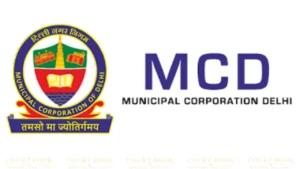The Division Bench, comprising Justice R. Suresh Kumar and Justice G. Arul Murugan, delivered the verdict while dismissing appeals filed by the Commissioner of CGST and Central Excise against Kothari Sugars and Chemicals Ltd.
The case stemmed from a series of show cause notices issued to Kothari Sugars between 2008 and 2015. The company, a manufacturer of sugar and molasses, had availed CENVAT Credit on capital goods used for setting up a captive co-generation power plant. The Revenue challenged this, alleging the credit was wrongly claimed, primarily because electricity — the output of the plant — is an exempted product.
Read Also:- Madras High Court Quashes NDPS Case Against Man, Says Helping With Job Doesn't Mean Harbouring Accused
However, the Court held that the show cause notices issued by the department did not mention any requirement for a User Test Certificate. As per the Bench, the only issue raised in those notices was the use of capital goods for generating exempted electricity, not the lack of certification.
“Nowhere in the show cause notices has the Revenue raised any doubt about the actual use of capital goods in the co-generation plant,” the Court observed.
Initially, the writ court had directed Kothari Sugars to appear before the Commissioner of CGST and Central Excise, instructing the officer to follow a precedent set in a similar case involving EID Parry (India) Ltd., where CENVAT Credit had been allowed.
During the follow-up proceedings, however, the Revenue insisted that Kothari Sugars submit a User Test Certificate, similar to what had been furnished in the EID Parry case. Aggrieved by this sudden demand, Kothari Sugars filed a batch of review applications.
Read Also:- "TASMAC Challenges ED Raid in Madras High Court, Says Officers Can't Act Above the Law"
The Court found this insistence unjustified, stating that such a demand could not be introduced after the original proceedings had commenced and where it was not a stated requirement in the notices.
“The Revenue cannot change its stand or build a new case that was never pleaded in the original show cause notice,” the Bench emphasized.
The Court further addressed arguments presented by the Revenue that prior Supreme Court judgments — notably Jawahar Mills Ltd. and Rajasthan Spinning & Weaving Mills Ltd. — supported the need for a UTC. The Court clarified that these rulings did not establish UTC as a mandatory prerequisite.
The judgment also pointed out that the delay in adjudication was due to the Revenue placing the matter in the call book, pending a related issue before the Supreme Court. Later, the case was withdrawn due to the low monetary value involved. The Court concluded that there was no substantial ground to reopen or enforce requirements that were not originally part of the Revenue’s case.
Read Also:- Madras High Court Questions Tamil Nadu Government Over Supreme Court Move in ED-TASMAC Case
Dismissing the appeals, the Bench reaffirmed the importance of transparency and consistency in show cause proceedings.
“A taxpayer cannot be subjected to shifting standards mid-way through adjudication. If there was no mention or requirement in the original notice, it cannot be enforced later,” the judgment concluded.“Those judgments discuss the ‘user test’ to assess if machinery qualifies as capital goods but do not mandate a certificate. The demand for such a certificate is neither compulsory nor standard in every case,” the Court stated.
Case Title: The Commissioner of CGST & Central Excise v. Kothari Sugars and Chemicals Ltd.
Case Number: W.A.(MD). Nos. 557 to 568 of 2024
Judges: Justice R. Suresh Kumar and Justice G. Arul Murugan
Appellant’s Counsel: Mr. N. Dilipkumar
Respondent’s Counsel: Mr. Joseph Kodianthara














